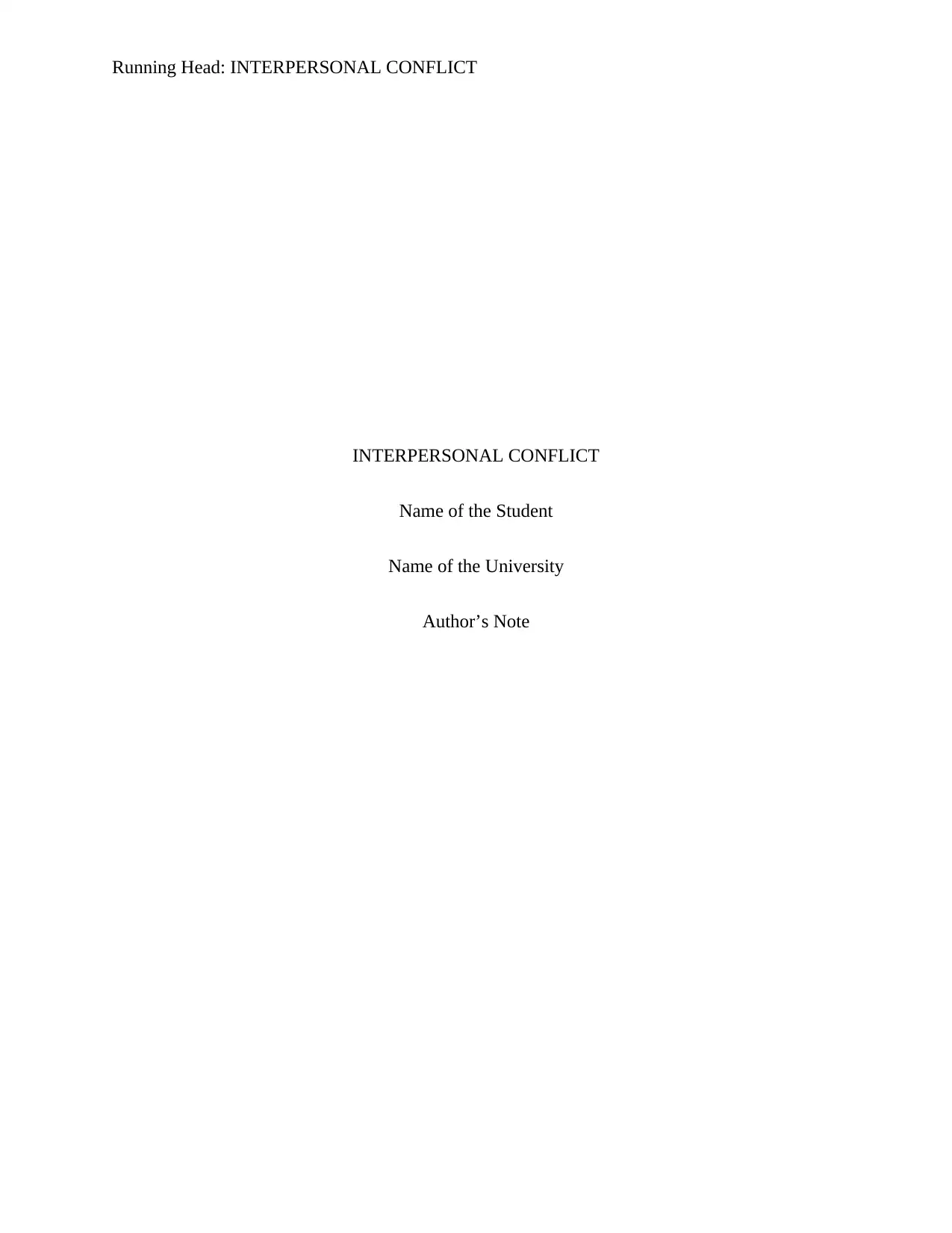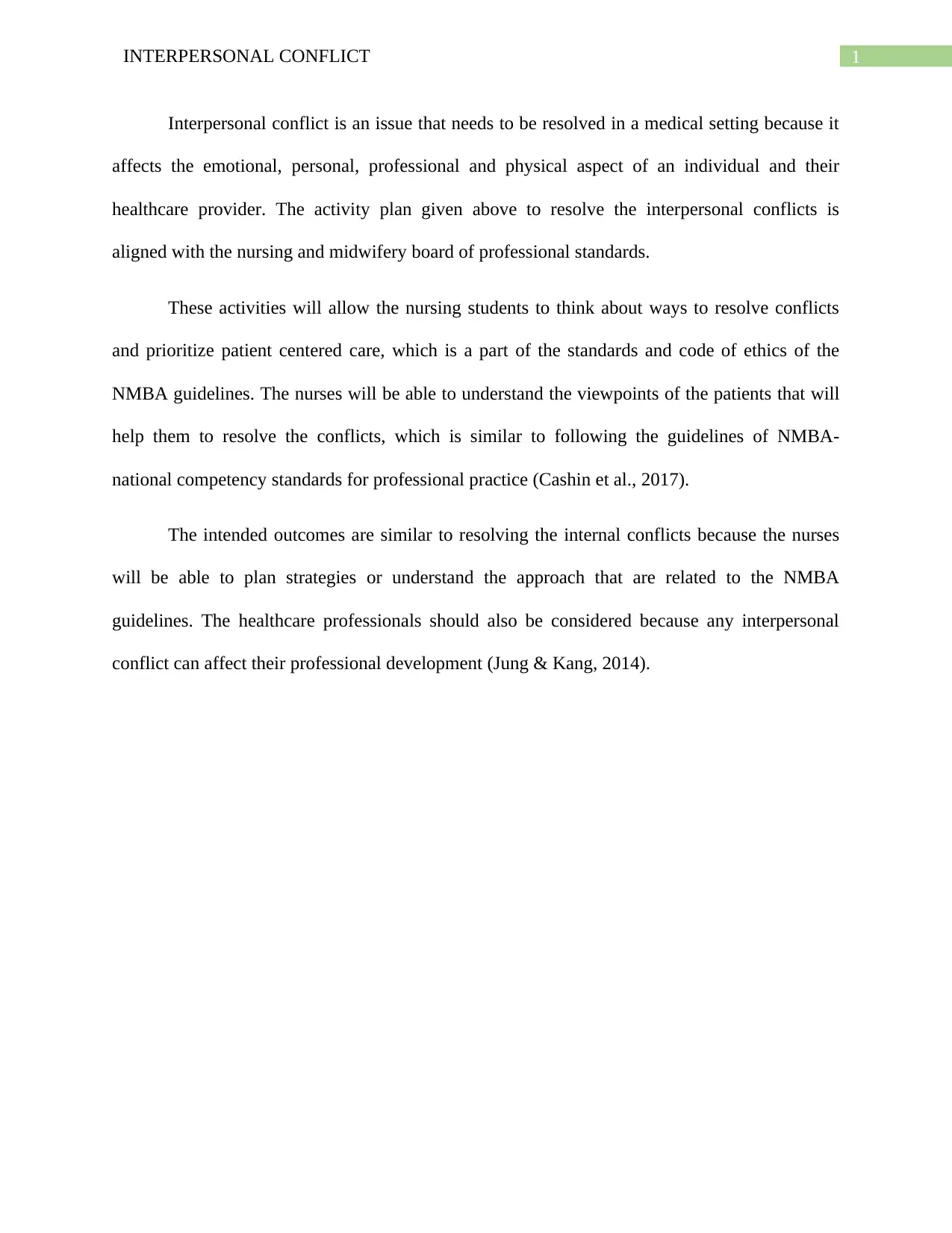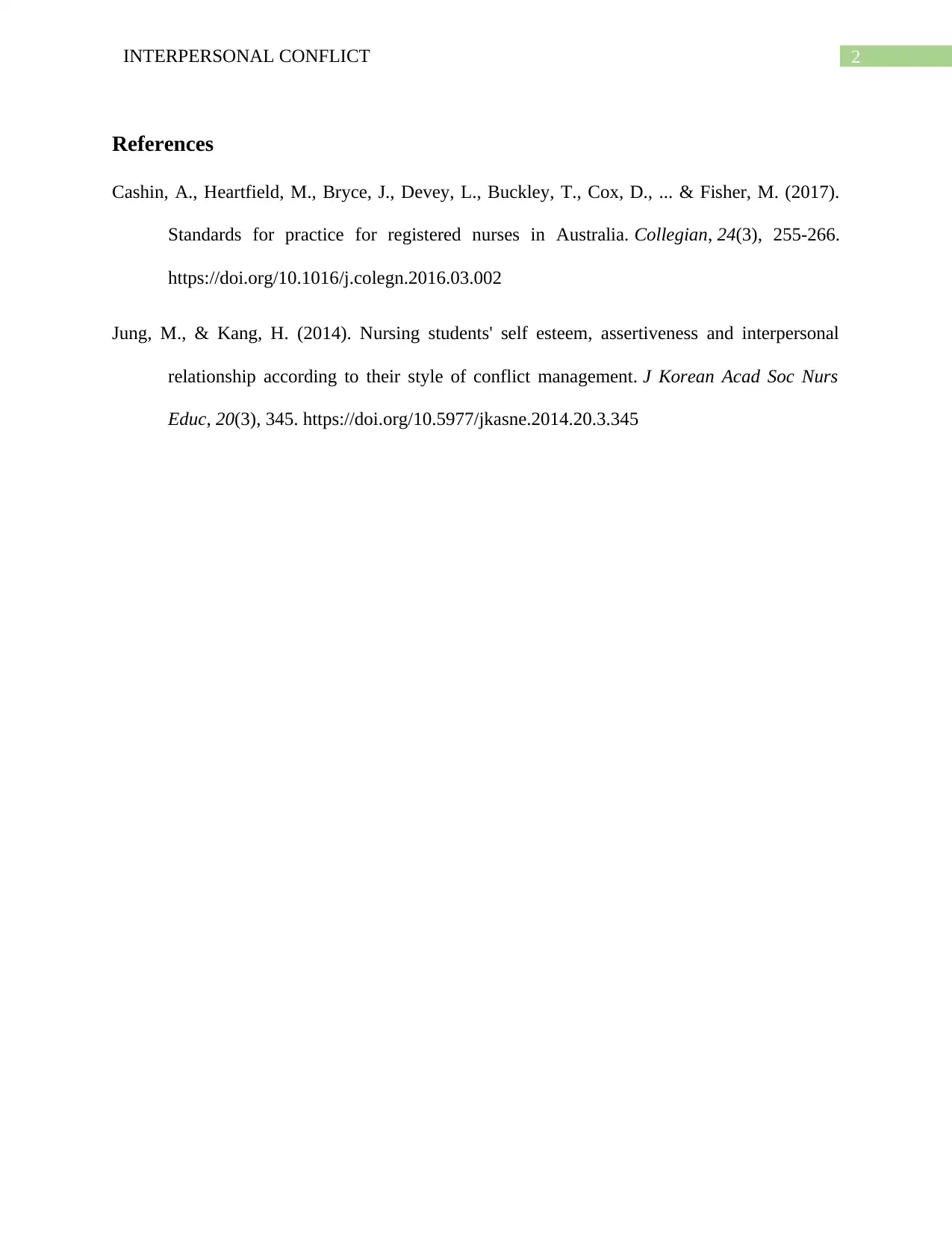Interpersonal Conflict and Patient Care: NMIH303 Report
VerifiedAdded on 2022/07/29
|3
|316
|31
Report
AI Summary
This report addresses the critical issue of interpersonal conflict within healthcare settings, focusing on its impact on nursing practice and patient care. The assignment explores the nature of interpersonal conflict, highlighting its potential to affect emotional, personal, professional, and physical aspects of both healthcare providers and patients. The report emphasizes the importance of understanding and resolving these conflicts, aligning with the standards of the Nursing and Midwifery Board of Australia (NMBA). It discusses how conflict resolution strategies can improve patient-centered care, considering the perspectives of patients and healthcare professionals. The report references relevant literature and aims to equip nursing students with the knowledge and skills to effectively manage and mitigate interpersonal conflicts, ultimately enhancing professional development and patient outcomes.
1 out of 3










![[object Object]](/_next/static/media/star-bottom.7253800d.svg)